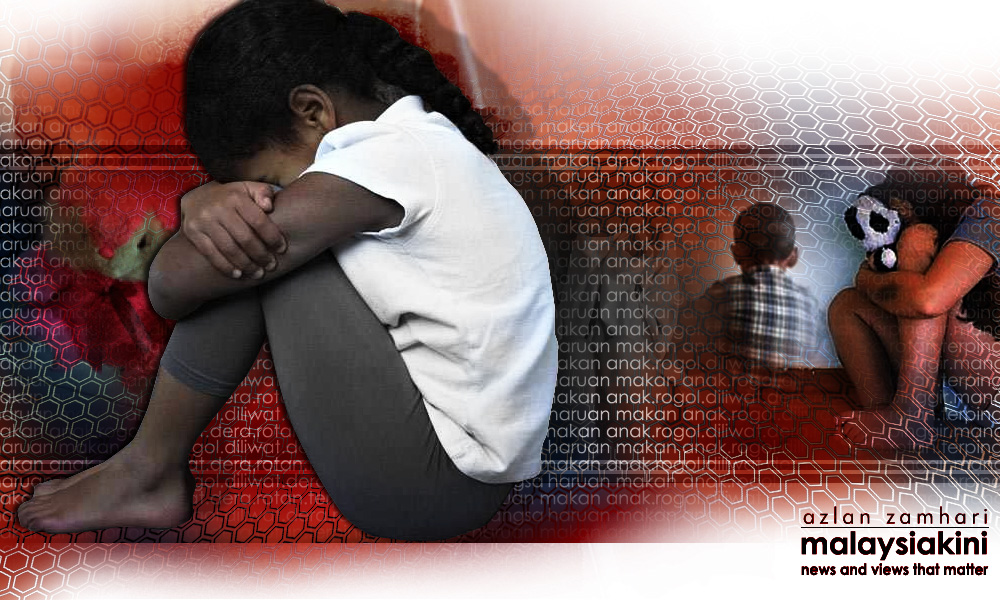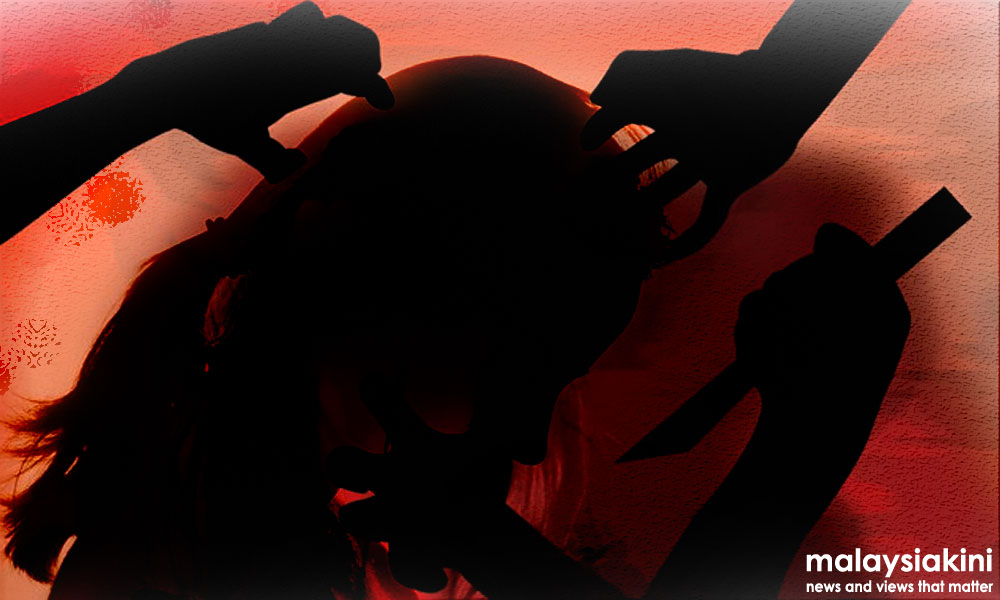COMMENT | Women's sexuality is still such a taboo topic that many seem to believe women are not horny and they don't have sex.
For a woman whose higher frequency of sexual encounters renders her a “slut” to others, it's scary how high the likelihood of rape is for her. We just don't talk enough about it.
And let's get one thing clear: rape is rape. It is never about a woman's unfortunate circumstances that led to the rape. Rape is about a false sense of power and entitlement over another person's body, so much so that it justifies the violation of a person's autonomy to say "no."
Yes, rape can happen to men too. But based on statistics from the Women’s Centre for Change of Penang, one woman gets raped every 35 minutes in Malaysia, so let's focus on sexual assault upon women.
The biggest part of the problem is when what men consider rape sometimes differs, depending on the situation. I cannot exaggerate how few men actually understand this.
Rape is generally understood to mean a situation in which a woman says ‘no’ to sex and the man forces his penis into her vagina, but this is not the only form of rape.
The many faces of rape
While statutory rape is now recognised by law, there are rapes of various degrees that still go largely unnoticed. Marital rape is one example of a type of rape that men still get away with because there is no law to address marital rape in Malaysia.
But let's look at the other forms of rape that occur in real life.
A woman is raped when she is in no condition to give consent to sex, whether this is because she is unconscious or drunk.
When two people are in the middle of having sex and the woman asks to stop the act, even during penetration, the man has no excuse for not stopping. If he ignores her call to stop and still continues and completes the sex act, that's rape.

Inserting a foreign object into the sexual organs of another person without consent is also rape.
When two people have sex, but the woman later finds out the man slipped off the condom without her knowing and he ejaculates inside of her without her knowledge or consent, that's also rape.
I wish I could describe the very horror of rape and its psychological trauma on the victims. Different survivors cope with it differently; some recover from the experience rather quickly while some might take years to overcome it.
But no matter how "small-scale" the rape is, rape is rape is rape. We have to stop forgiving the "minor forms of rape" just because they don't result in a major harm that we can see.
Do we really need to see rape survivors suffering in absolute and devastating pain for their ordeal to be valid? Rape culture is so prevalent that we dismiss rape when it happens to women who "asked for it," or who don't fall into the category of morally acceptable women.
Rape in Islam
Most importantly in the context of Malaysia, statutory and marital rapes are being excused on a daily basis, in the name of religion.
The latest video by The Star’s investigative journalism platform R.Age on the sexual grooming of underage girls shows a man who defends statutory rape on the basis of "differences in interpretation". This is beyond outrageous.
We are not talking about differences in interpretation regarding a personal journey in the faith, we are talking about differences in interpretation regarding the right to violate another human being!
It's telling when women are punished for "differences in interpretation" when it comes to choosing to wear the hijab or exercising marital rights as a Muslim woman, but "differences in interpretation" are defended when it justifies men's sick entitlement over a woman's body.
With Islamic scholars being coloured by patriarchy and its justification of violence against women, rape does not necessarily begin with a date and it definitely does not end with marriage.

Marital rape happens just as easily as any other form of rape. And with statutory rape being allowed in Malaysia with the permission of the syariah court, Malaysian Muslim women are not only unprotected from rapists, we are expected to be okay with being married to them.
It's almost as if signing off a marriage certificate means signing off your personhood. You are not human enough in the eyes of the law that your body can't seek justice when it's harmed.
Make society responsible
In one way or another, all of us are responsible for crimes committed against women when we perpetuate rape culture.
We are responsible for rape culture when we belittle children for their discomfort with certain relatives, who touch them in certain places, and we force them to shake their hands just to save face. We train our children to be okay with violations of personal and physical space.
We are responsible for rape culture when we belittle women who talk about sexual harassment, and we put the blame on women for drawing the attention of men in the first place.
And when women do try to speak up about marital rape, all the official and unofficial marriage counsellors in the form of mothers, mothers-in-law and aunties advice them to be redha (be resigned) and sabar (be patient) with their husbands and to go back to the arms of their husbands, no matter what.
We have a society that is so forgiving towards rapists, and yet so unforgiving to women who challenge the status quo in a society where privilege allows men to determine what's rape and what's not.
We are responsible for this happening because nobody ever wants to see himself or herself as a bad person, even when we do and say things that lead to harm for other people.
Our hands are equally dirty when we continue to be in denial about our indirect role in violence. And the more we deny it, the longer it will take to ensure that the society we live in is safe for women.
MARYAM LEE is a writer with a chronic tendency of getting into trouble. What she lacks in spelling when writing in English is made up for with her many writings in Bahasa Malaysia. She believes in conversations as the most valuable yet underrated cause of social change. She wants people to recognise silences and give them a voice, as she tries to bring people together through words.
The views expressed here are those of the author/contributor and do not necessarily represent the views of Malaysiakini.

